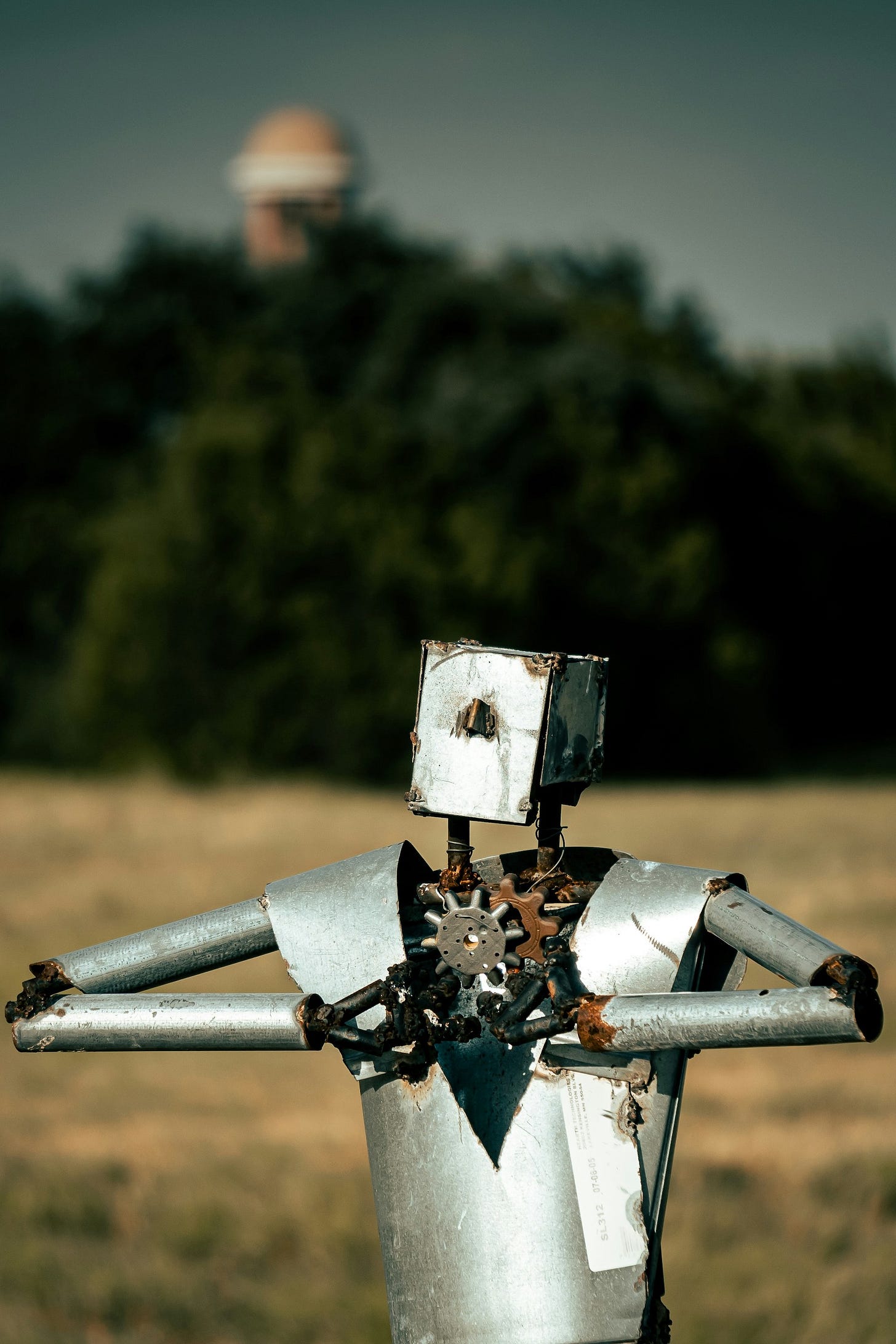How AI Makes Art More Interesting
And I think I wrote a pop punk song?
A few weeks ago, I was at a party where one of the attendees was a DJ. He was stopping by before going to a few other weekend festivities (at 9pm, this was his first stop of the night). We got to talking about music, and somehow the conversation turned toward AI generated music.
He asked me if I had heard of Udio. I said I hadn’t. He asked me to describe a song. I told him “a pop punk song about buying an energy drink at 7/11”. He pulled up the site, entered the prompt, and in about a minute the program spit out multiple 30 second clips matching the description of what I had requested.
I wasn’t surprised (we’ve all known about the capabilities of generate AI models for a couple of years now), but I was nonetheless disturbed. The clips sounded polished and well-produced. They were convincing, easily capable of passing a punk rock Turing test. Granted, they were just clips, not full songs, but we were just using the free tier.
He noted how if he were just passively listening to a Spotify playlist, the songs that we generated would have slotted in perfectly. We quickly returned to listen to a live version of “Bertha” by the Grateful Dead, and that was the extent of our discussion.
I have a good many creative friends who are artists, musicians, and writers of various genres, and they’re generally troubled by the capabilities of generative AI, understandably so. When you’ve worked hard to hone a craft, encountering an automaton that produces in seconds some semblance what would take you hours, days, or weeks is demoralizing. And it provokes the question — why should anyone engage with a work when they can just as easily consume a nearly perfect simulacrum?
It seems like an obvious question, but I have never been interested in reading an AI generated story or listening to an AI generated song, and AI generated art…bores me.
Why?
I think that is a more interesting question.
Nick Cave once famously replied that a “song” generated by ChatGPT “in the style of Nick Cave” will “always be a replication, a kind of burlesque”. Why is this? The answer, according to Cave, is suffering:
Songs arise out of suffering, by which I mean they are predicated upon the complex, internal human struggle of creation and, well, as far as I know, algorithms don’t feel. Data doesn’t suffer. ChatGPT has no inner being, it has been nowhere, it has endured nothing, it has not had the audacity to reach beyond its limitations, and hence it doesn’t have the capacity for a shared transcendent experience, as it has no limitations from which to transcend. ChatGPT’s melancholy role is that it is destined to imitate and can never have an authentic human experience, no matter how devalued and inconsequential the human experience may in time become.
Cave is right — even AGI could never have true interiority because it is developed on a model of human consciousness that assumes we are no more than calculating machines. It is a model of consciousness that is grounded in a purely mechanistic understanding of the world — an understanding that, when probed, cannot account for its veracity on its own terms.
In my opinion, generative AI has only amplified the value of truly human excellence. If a machine can generate bits that are in turn transformed into any analog signal that one can imagine, then it will flood the market with slop. In turn, true originality will only become more scarce and more valuable.
When I say “valuable”, I think it remains to be seen how this shakes out in economic terms — that is something we will need to decide for ourselves. But speaking for myself, I’m doubling down on listening to music and reading words that I know have breathing, suffering souls behind them. And this choice isn’t even out of a conscious defiance of “big tech” — it’s simply that the internet has become so flooded with generic generative garbage that any human signal in the midst of it is all the more desirable to me.
Photo by Dylan Hunter on Unsplash
Could I be getting fooled by a Turing test? Maybe. But that’s just an opportunity for humans to dig deeper into the wells that make them who they are. Sure, it’s frustrating that the mainstream job markets for creatives in industries like film and television are not as lucrative as they once were, but that market was already following a similar trajectory before AI developments (IMHO Netflix was already inundated with “slop”).
We’re working on the frontiers of technological developments that are causing disruption in often imperceptible ways. The ossified institutional vanguards that have always operated out of self-interest and self-preservation are certainly looking to leverage these developments to benefit themselves without regard for creatives or consumers. But we also can control what we put into our heads and build with our hands. It’s totally possible for us to use these developments to disrupt them instead.



I definitely agree that the vulnerable and authentic human behind an art piece is kinda what really gives it it's soul. So the simple output of a text-to-song/image/etc. generator is a different "substance" than what the artist the output is simulating produces.
That said, one thing I do find compelling is that AI tech does democratize access to creative output that would otherwise be outside the budget of smaller artists. Before these models were available, only established artists/studios could hire teams of smaller artists to creative direct and realize a grander vision. Now, those smaller artists can creative direct AI artists towards their own grander visions. Sort of levels the playing field.
As one example, here's something I put out last year that leaned on the support of AI: https://artbroadly.substack.com/p/a-perfect-summer-afternoon-in-milan